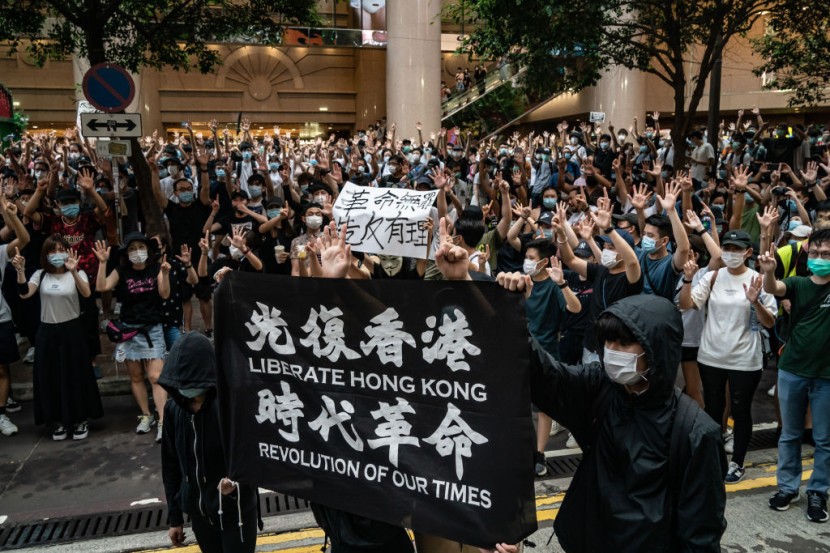
A Hong Kong court judge rejected the government's request to ban the unofficial anthem song of the island nation from the internet that was part of the region's pro-democracy movement.
In a ruling made by Judge Anthony Chan, he said that granting the ban would have had "chilling effects" on the island nation's freedom of speech. The decision comes as authorities have been angered whenever they heard Glory to Hong Kong being played instead of the Chinese national anthem during international sports events.
Hong Kong Judge Rejects Ban on Pro-Democracy Song
Officials have worked to take a tougher stance towards protests within the region in the last few years. While Hong Kong is a part of China, it has maintained some form of autonomy since the end of British rule in 1997. Campaigners have argued that democratic freedoms have been gradually eroded since that time.
They also claim that attempts to ban the song are another sign of Beijing's continued crackdown on dissent against the Chinese government. Authorities have, for months, tried to erase or mask all traces of the song from the internet. According to BBC, the unofficial anthem, Glory to Hong Kong, was also banned in schools in 2020.
On the other hand, the Hong Kong government has petitioned Google to have the song removed or at least ranked lower in search results for people who use the tech company's services. However, this was a request that the latter has consistently denied to do.
In June, Justice Minister Paul Lam Ting-Kwok requested that the court grant an interim injunction to ban the song from being promoted, disseminated, or performed "with the intention of inciting others to commit secession or with a seditious intent."
However, in the judge's ruling, he said that he believes that the intrusion of freedom of expression within the case, especially to innocent third parties, is what they refer to in public law as chilling effects. The judge did not elaborate on who he meant when he said innocent third parties.
Chilling Effects on Freedom of Speech
The situation comes as Hong Kong has jailed political opponents, quashed street protests, and closed down pro-democracy newspapers since coming under the tighter grip of Beijing. However, the internet, in contrast to mainland China, has largely maintained its freedom from government control, according to the New York Times.
In Chan's ruling, he argued that freedom of expression, while not absolute, is nonetheless a highly important right that cannot simply be lawfully restricted without first meeting legal certainty and proportionality requirements.
The Hong Kong judge also said it would have been the wrong decision to ban the song as existing criminal laws already gave authorities the power to prosecute people for spreading the song, saying that the new ban would be unnecessary.
On the other hand, critics have warned that if Chan had granted the ban on the song, there would be a decline in civil liberties since Beijing's crackdown following the 2019 protests. They argued that it could also disrupt internet companies and damage the city's appeal as a business center, said the Associated Press.








